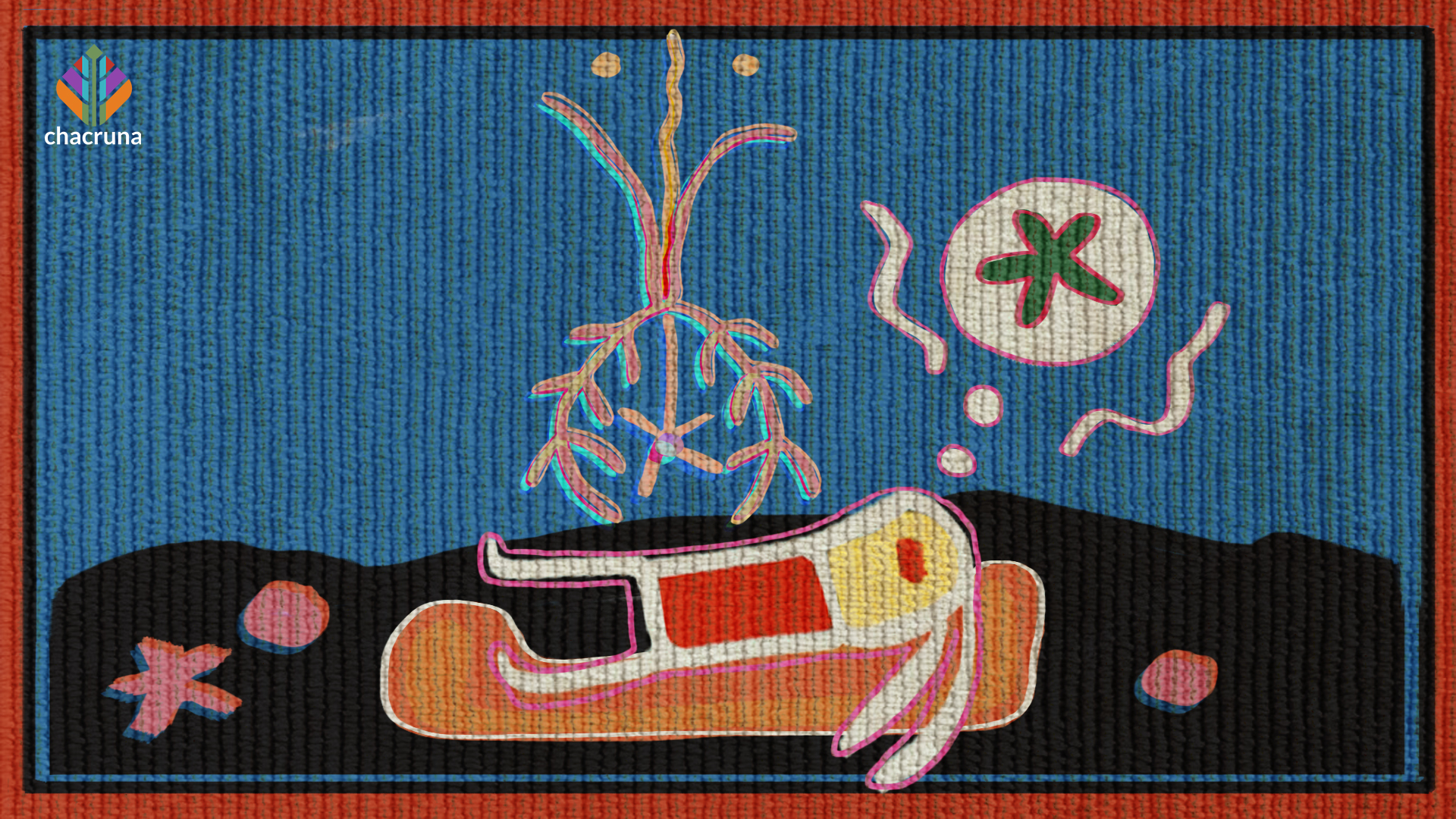Culture
- Conferences
- Culture
- Events Announcement
- In-Person Community Dialogues
- Inclusion & Diversity
- Indigenous Voices
- Integration
- Invited Panels
- Music
- News
- Newsletter
- Newsletters
- Past Courses
- Past Workshops
- Podcast
- Policy
- Power and Discrimination
- Press Release
- Queer
- Rapeh Circles
- Reciprocity Dialogues
- Research
- Science
- Sex & Power
- Spirituality
- Studies in Psychedelic Justice
- Virtual Community Forums
- Women
- Workshops
Julien Bonhomme explores how Euro-American psychedelic communities have appropriated Bwiti ibogaine rituals, creating a liminal experience that incorporates from both traditions. For Western practitioners, ibogaine visions allowed individuals to see through themselves and recreate themselves as they desired in order to overcome their existential problems. While the Gabonese practitioners' visions more often reflected the images of mythical ancestors or relatives practicing witchcraft, rather than mirror-images of themselves.
Research and Transformation
Huni meka, the songs of nixi pae (ayahuasca), are in the
language of the anaconda; the phrase is from Ibã Huni Kuin....
Land and ecology matter to the global psychedelics movement because it is a movement born out of a long history of colonialism and land theft. The Indigenous peoples from which our psychedelic traditions originate continue to deal with the negative consequences of this colonial violence. Focusing on the Wixarika experience, Diana Negrin explores the intercultural work that needs to be done in order to help Indigenous communities thrive today.
The future of psychedelics is intertwined with cryptocurrencies and blockchain. Each is a powerful technology. What happens when psychedelics and blockchain come together?
Introducing Cryptocurrency...
Alex Beiner critiques a paper called Psilocybin: From Serendipity to Credibility in the journal ‘Frontiers in Psychiatry’ which was written by two psychiatrists, James Rucker and Allan Young, about the use of psilocybin by legal retreats. He centers the philosophical question of “who has the right control access to psilocybin?“, provides counter arguments to the current power structures, and offers an opportunity to create a truly unique, multidisciplinary and ground-breaking model of healing.
Diana Negrín, Ph.D, reflects on growing up in Guadalajara and listening in to her father, Juan Negrín, pioneer researcher of the Wixarika culture, in conversation about the intersection between Western and Indigenous scientific knowledge with friends from the California psychedelic community like Sasha Shulgin.
On Sunday, February 25, the closing ceremony for the Conference on Sacred Plants in the Americas was celebrated in the Mexican lakeside town of...
In 1995 I published a book called The Cosmic Serpent that dealt with ayahuasca and other subjects. The enthusiasm of many readers took me...
This article explores a paper written by Eduardo Ekman Schenberg and Konstantin Gerber titled Overcoming epistemic injustices in the biomedical study of ayahuasca: Towards ethical and sustainable regulation. While the paper promised to explore ways of overcoming these epistemic injustices and raises important issues, the author shares vast criticism due to its many controversial and inaccurate points.
What happens when traditional knowledge is incorporated into the classroom? At the Federal University of Minas Gerais in Brazil, two Guarani shamans were given the opportunity to be lecturers as part of the Transversal Training Program in Traditional Knowledge.


















